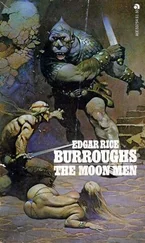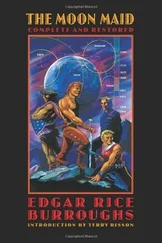Edgar Burroughs - The Lost Continent
Здесь есть возможность читать онлайн «Edgar Burroughs - The Lost Continent» весь текст электронной книги совершенно бесплатно (целиком полную версию без сокращений). В некоторых случаях можно слушать аудио, скачать через торрент в формате fb2 и присутствует краткое содержание. Жанр: Фантастика и фэнтези, на английском языке. Описание произведения, (предисловие) а так же отзывы посетителей доступны на портале библиотеки ЛибКат.
- Название:The Lost Continent
- Автор:
- Жанр:
- Год:неизвестен
- ISBN:нет данных
- Рейтинг книги:4 / 5. Голосов: 1
-
Избранное:Добавить в избранное
- Отзывы:
-
Ваша оценка:
- 80
- 1
- 2
- 3
- 4
- 5
The Lost Continent: краткое содержание, описание и аннотация
Предлагаем к чтению аннотацию, описание, краткое содержание или предисловие (зависит от того, что написал сам автор книги «The Lost Continent»). Если вы не нашли необходимую информацию о книге — напишите в комментариях, мы постараемся отыскать её.
The Lost Continent — читать онлайн бесплатно полную книгу (весь текст) целиком
Ниже представлен текст книги, разбитый по страницам. Система сохранения места последней прочитанной страницы, позволяет с удобством читать онлайн бесплатно книгу «The Lost Continent», без необходимости каждый раз заново искать на чём Вы остановились. Поставьте закладку, и сможете в любой момент перейти на страницу, на которой закончили чтение.
Интервал:
Закладка:
Troops, sometimes mounted and sometimes afoot, left the post daily for what I assumed to be patrol duty. I judged the little force of a thousand men were detailed here to maintain the authority of a distant government in a conquered country. Later, I learned that my surmise was correct, and this was but one of a great chain of similar posts that dotted the new frontier of the black nation into whose hands I had fallen.
Slowly I learned their tongue, so that I could understand what was said before me, and make myself understood. I had seen from the first that I was being treated as a slave—that all whites that fell into the hands of the blacks were thus treated.
Almost daily new prisoners were brought in, and about three weeks after I was brought in to the post a troop of cavalry came from the south to relieve one of the troops stationed there. There was great jubilation in the encampment after the arrival of the newcomers, old friendships were renewed and new ones made. But the happiest men were those of the troop that was to be relieved.
The next morning they started away, and as they were forced upon the parade ground we prisoners were marched from our quarters and lined up before them. A couple of long chains were brought, with rings in the links every few feet. At first I could not guess the purpose of these chains. But I was soon to learn.
A couple of soldiers snapped the first ring around the neck of a powerful white slave, and one by one the rest of us were herded to our places, and the work of shackling us neck to neck commenced.
The colonel stood watching the procedure. Presently his eyes fell upon me, and he spoke to a young officer at his side. The latter stepped toward me and motioned me to follow him. I did so, and was led back to the colonel.
By this time I could understand a few words of their strange language, and when the colonel asked me if I would prefer to remain at the post as his body servant, I signified my willingness as emphatically as possible, for I had seen enough of the brutality of the common soldiers toward their white slaves to have no desire to start out upon a march of unknown length, chained by the neck, and driven on by the great whips that a score of the soldiers carried to accelerate the speed of their charges.
About three hundred prisoners who had been housed in six prisons at the post marched out of the gates that morning, toward what fate and what future I could not guess. Neither had the poor devils themselves more than the most vague conception of what lay in store for them, except that they were going elsewhere to continue in the slavery that they had known since their capture by their black conquerors—a slavery that was to continue until death released them.
My position was altered at the post. From working about the headquarters office, I was transferred to the colonel's living quarters. I had greater freedom, and no longer slept in one of the prisons, but had a little room to myself off the kitchen of the colonel's log house.
My master was always kind to me, and under him I rapidly learned the language of my captors, and much concerning them that had been a mystery to me before. His name was Abu Belik. He was a colonel in the cavalry of Abyssinia, a country of which I do not remember ever hearing, but which Colonel Belik assured me is the oldest civilized country in the world.
Colonel Belik was born in Adis Abeba, the capital of the empire, and until recently had been in command of the emperor's palace guard. Jealousy and the ambition and intrigue of another officer had lost him the favor of his emperor, and he had been detailed to this frontier post as a mark of his sovereign's displeasure.
Some fifty years before, the young emperor, Menelek XIV, was ambitious. He knew that a great world lay across the waters far to the north of his capital. Once he had crossed the desert and looked out upon the blue sea that was the northern boundary of his dominions.
There lay another world to conquer. Menelek busied himself with the building of a great fleet, though his people were not a maritime race. His army crossed into Europe . It met with little resistance, and for fifty years his soldiers had been pushing his boundaries farther and farther toward the north.
"The yellow men from the east and north are contesting our rights here now," said the colonel, "but we shall win—we shall conquer the world, carrying Christianity to all the benighted heathen of Europe, and Asia as well."
"You are a Christian people?" I asked.
He looked at me in surprise, nodding his head affirmatively.
"I am a Christian," I said. "My people are the most powerful on earth."
He smiled, and shook his head indulgently, as a father to a child who sets up his childish judgment against that of his elders.
Then I set out to prove my point. I told him of our cities, of our army, of our great navy. He came right back at me asking for figures, and when he was done I had to admit that only in our navy were we numerically superior.
Menelek XIV is the undisputed ruler of all the continent of Africa, of all of ancient Europe except the British Isles, Scandinavia, and eastern Russia, and has large possessions and prosperous colonies in what once were Arabia and Turkey in Asia .
He has a standing army of ten million men, and his people possess slaves—white slaves—to the number of ten or fifteen million.
Colonel Belik was much surprised, however, upon his part to learn of the great nation which lay across the ocean, and when he found that I was a naval officer, he was inclined to accord me even greater consideration than formerly. It was difficult for him to believe my assertion that there were but few blacks in my country, and that these occupied a lower social plane than the whites.
Just the reverse is true in Colonel Belik's land. He considered whites inferior beings, creatures of a lower order, and assuring me that even the few white freemen of Abyssinia were never accorded anything approximating a position of social equality with the blacks. They live in the poorer districts of the cities, in little white colonies, and a black who marries a white is socially ostracized.
The arms and ammunition of the Abyssinians are greatly inferior to ours, yet they are tremendously effective against the ill-armed barbarians of Europe . Their rifles are of a type similar to the magazine rifles of twentieth century Pan-America, but carrying only five cartridges in the magazine, in addition to the one in the chamber. They are of extraordinary length, even those of the cavalry, and are of extreme accuracy.
The Abyssinians themselves are a fine looking race of black men—tall, muscular, with fine teeth, and regular features, which incline distinctly toward Semitic mold—I refer to the full-blooded natives of Abyssinia . They are the patricians—the aristocracy. The army is officered almost exclusively by them. Among the soldiery a lower type of negro predominates, with thicker lips and broader, flatter noses. These men are recruited, so the colonel told me, from among the conquered tribes of Africa . They are good soldiers—brave and loyal. They can read and write, and they are endowed with a self-confidence and pride which, from my readings of the words of ancient African explorers, must have been wanting in their earliest progenitors. On the whole, it is apparent that the black race has thrived far better in the past two centuries under men of its own color than it had under the domination of whites during all previous history.
I had been a prisoner at the little frontier post for over a month, when orders came to Colonel Belik to hasten to the eastern frontier with the major portion of his command, leaving only one troop to garrison the fort. As his body servant, I accompanied him mounted upon a fiery little Abyssinian pony.
Читать дальшеИнтервал:
Закладка:
Похожие книги на «The Lost Continent»
Представляем Вашему вниманию похожие книги на «The Lost Continent» списком для выбора. Мы отобрали схожую по названию и смыслу литературу в надежде предоставить читателям больше вариантов отыскать новые, интересные, ещё непрочитанные произведения.
Обсуждение, отзывы о книге «The Lost Continent» и просто собственные мнения читателей. Оставьте ваши комментарии, напишите, что Вы думаете о произведении, его смысле или главных героях. Укажите что конкретно понравилось, а что нет, и почему Вы так считаете.








